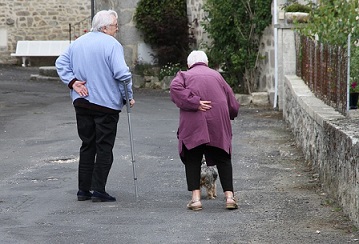The effects of dehydration can be devastating to one’s health and can lead to a variety of health problems, such as thirst, headaches, dry mouth, exhaustion, reduced cognition, and many other health complications. Dehydration can also contribute to lethargy and impaired cognitive function.
Elderly people are especially prone to acute dehydration because they may have lost the ability to feel thirsty, and as a result, they do not realise that they are dehydrated until it is too late. As a result, acute dehydration is a prevalent problem that affects elderly people.
Other factors that may contribute to an increased risk of dehydration in older adults include the following:
- A significant percentage of older people have kidneys that do not function as effectively as they once did;
- Because the significance of consuming sufficient amounts of fluids was not always acknowledged to the same degree as it is today, a significant number of older people are unaware of the fact that they need to hydrate themselves on a routine basis.
- A significant number of older people use drugs or diuretics that raise the volume of urine they produce, yet they do not consume nearly enough replacement fluids.
- Some elderly people choose not to drink water because they have incontinence, and some elderly people are unable to drink water because they are immobile due to pain or for other physiological reasons that make it difficult for them to either get water for themselves or hold a glass of water because of their condition.
According to the National Institutes of Health, older people may exhibit any combination of the following symptoms if they are suffering from acute or chronic dehydration:
- A mouth that is dry or sticky.
- Urine that is a dark yellow or an amber colour
- a condition in which one is unable to cry
- Lethargy
- Minimal or no urine output
- Sunken eyes
- Vomiting
- Diarrhoea
It is critical that you keep an eye on senior relatives and make certain that they are drinking enough fluids and do not exhibit any of the following signs of dehydration. It is crucial that you keep an eye on elderly relatives. If you do detect any of these symptoms, it is imperative that you get the person to drink water as soon as possible in order to restore the equilibrium of their physiological fluids.
If the dehydration is more severe, the elderly person may need to be hospitalised and given fluids intravenously in order to swiftly restore the lost fluids before further harm is done. This may be necessary in order to prevent further damage from occurring.
Living-Water is the place to go to get a water cooler or accessories for a water cooler. In London, you can purchase water coolers that draw their water from either bottled water or the mains.






